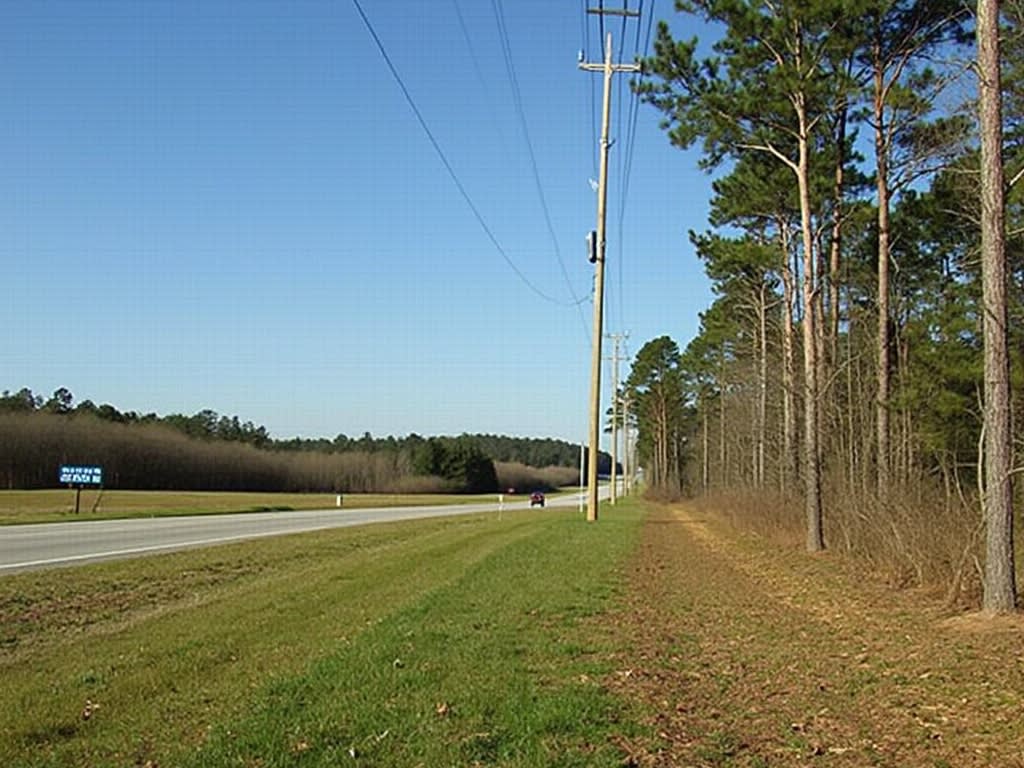Land sales in Georgia demand precise title records, exact property measurements, and optimal market timing. I’ve found that accurate property boundaries, detailed ownership records, and partnerships with land sales experts directly affect your ability to successfully sell your Georgia land. Clear documentation and proper research increase your chances of a profitable transaction.
Key Takeaways:
- Fix any title problems and gather boundary documents before listing, including an up-to-date property survey and proof of access rights
- The prime time to sell land in Georgia runs from March through June, with property values typically climbing 5-8% during these peak months
- Choose a real estate agent with proven land sales expertise instead of one focused on homes – their specialized knowledge makes a critical difference
- Sharp property photos and clean, accessible entry points attract more potential buyers and create strong first impressions
- Verify current zoning rules and get professional property assessments to avoid legal issues and keep transactions moving forward
Don’t Let Title Issues Kill Your Land Sale in Georgia
Understanding Title Requirements
Land sales can fall apart quickly without proper title documentation. I recommend getting a title policy from a title insurance company before listing your property. This protects both you and potential buyers from future claims against the property. Title discrepancies like unclear boundaries, missing access rights, or mineral rights disputes need resolution prior to marketing your land.
Survey and Boundary Documentation
A recent property survey using current equipment is essential for accurate acreage reporting. Here are key survey elements that must be verified:
- Property boundary markers and monuments
- Legal access points and easements
- Total acreage calculations
- Encroachments from neighboring properties
- Natural features affecting property lines
- Access road locations and rights-of-way
Recent GPS technology and digital mapping have made old surveys less reliable. Boundary disputes often arise from outdated information, so getting a new survey helps prevent future conflicts. Access rights documentation proves the property has legal entry points from public roads – a critical factor buyers evaluate.
The mineral rights status must also be clearly documented. Many Georgia properties have split mineral rights from previous sales or transfers. Having necessary paperwork for land transactions ready helps avoid surprises during due diligence. A title company can research and verify the current mineral rights ownership status.

Pricing Your Georgia Land: Getting it Right the First Time
Setting the Right Price Through Market Analysis
I recommend starting with a thorough analysis of comparable land sales in your area. This gives you solid data to base your pricing decisions on. Looking at similar properties that sold within the last six months will show you what buyers are willing to pay.
Consider these key factors for accurate pricing:
- Recent sales of similar parcels within a 5-mile radius
- Seasonal market trends and their impact on land values
- Current zoning and potential future use
- Access to utilities and road frontage
- Topography and soil quality
- Local development plans that could affect value
A professional land appraiser can provide detailed insights into these elements and help you set a competitive price. They’ll factor in current market conditions and local real estate trends to determine the optimal listing price. Don’t forget to build in some negotiation room while staying within market expectations for land valuation.
Choose a Land-Savvy Real Estate Agent
Finding the Right Land Sales Expert
Residential real estate agents don’t automatically make great land sales professionals. I recommend selecting an agent with proven experience in vacant land, farms, or timber properties. Ask potential agents about their specific land sales track record and local market insights.
Key Questions for Agent Interviews
Your initial agent interview should focus on these critical areas:
- Number of land transactions completed in the past year
- Knowledge of Georgia’s land use regulations and zoning laws
- Experience with similar property types to yours
- Marketing strategies specifically for land sales
- Understanding of property value factors like soil quality, timber value, and access rights
- References from recent land sale clients
- Connections with land surveyors and environmental specialists
A skilled land agent should showcase their marketing plan, demonstrate clear knowledge of land valuation methods, and provide examples of successful past transactions. Their expertise can mean the difference between a quick sale and a property that sits idle for months.

Timing and Market Knowledge Matter
Understanding Georgia’s Land Market Cycles
I’ve found spring and early summer to be prime selling seasons for Georgia land, with March through June showing consistently higher transaction volumes. Based on local real estate data, property values typically rise 5-8% during these peak months.
The market responds strongly to these key factors:
- Weather conditions allow better property viewing and assessment
- Agricultural buyers plan spring purchases for growing seasons
- Residential developers start new projects as weather improves
- Recreational land buyers shop actively for hunting properties
Market conditions shift throughout the year in Georgia’s distinct regions. North Georgia mountain properties sell best in fall when foliage attracts buyers. South Georgia farmland moves quickly in early spring before planting season. Coastal properties maintain steady interest year-round but command premium prices in summer months. I recommend tracking local sales data for 2-3 months before listing to capitalize on optimal timing for your specific region and property type.

Property Presentation and Documentation
Professional Photography Standards
High-definition photos create powerful first impressions for potential land buyers. I recommend capturing multiple angles during peak daylight hours to showcase your property’s best features. Morning or late afternoon shots often provide the most flattering natural lighting, while aerial photos can display the full scope of larger parcels.
Property Maintenance and Documentation
A well-maintained property sells faster and at better prices. Here are essential tasks to complete before listing:
- Clear debris and overgrowth from access points
- Mow grass and trim vegetation along property lines
- Mark boundary lines clearly with stakes or markers
- Document key features like water sources, timber stands, or road access
- Create an organized folder of permits, surveys, and property maps
- Remove abandoned equipment or materials
- Maintain access roads and trails in good condition
Regular upkeep of these elements helps maintain the property’s market value and appeal throughout the selling process. If you’re planning to sell vacant land by owner, proper presentation becomes even more crucial.

Georgia-Specific Due Diligence
Legal Requirements and Zoning
I recommend checking local zoning regulations before listing your Georgia property. Each county maintains specific code classifications that impact land use and development potential. Your property’s value directly connects to these restrictions and permitted uses.
Property Assessment Factors
Several key elements need verification prior to sale:
- Flood plain status through FEMA mapping records
- Easement rights and restrictions from utility companies
- Property boundary markers and survey accuracy
- Environmental compliance with state regulations
- Legal access rights from public roads
- Wetland designations that limit development
A thorough property assessment helps prevent future disputes and ensures smooth transactions. Local regulations can vary significantly between Georgia counties, so consulting with county offices about specific requirements saves time and prevents costly mistakes.


